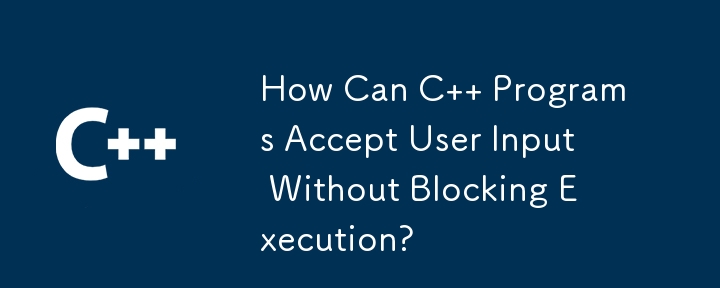

Non-Blocking Console Input Strategies for C Programs
In modern programming, it is often desirable to handle real-time user commands while a program is continually executing and outputting information. Non-blocking console input is crucial for achieving this functionality. This article explores various techniques to implement non-blocking console input in C effectively.
Asynchronous Input using C 11 and Future
One approach relies on C 11's
Example:
<code class="cpp">#include <iostream>
#include <chrono>
#include <future>
static std::string getAnswer()
{
std::string answer;
std::cin >> answer;
return answer;
}
int main()
{
std::chrono::seconds timeout(5);
std::cout << "Do you even lift?" << std::endl << std::flush;
std::string answer = "maybe"; //default to maybe
std::future<std::string> future = std::async(getAnswer);
if (future.wait_for(timeout) == std::future_status::ready)
answer = future.get();
std::cout << "the answer was: " << answer << std::endl;
exit(0);
}</code>Other Considerations:
Besides the above methods, developers may also consider using:
The choice of approach depends on factors such as platform compatibility, performance requirements, and ease of implementation. Exploring various options ensures selecting the most appropriate solution for specific project needs.
The above is the detailed content of How Can C Programs Accept User Input Without Blocking Execution?. For more information, please follow other related articles on the PHP Chinese website!
 what is mysql index
what is mysql index
 What is highlighting in jquery
What is highlighting in jquery
 Ethereum browser blockchain query
Ethereum browser blockchain query
 How to retrieve Douyin flames after they are gone?
How to retrieve Douyin flames after they are gone?
 How to solve the problem of 400 bad request when the web page displays
How to solve the problem of 400 bad request when the web page displays
 Commonly used search tools
Commonly used search tools
 Free software for building websites
Free software for building websites
 What is the basic concept of artificial intelligence
What is the basic concept of artificial intelligence




